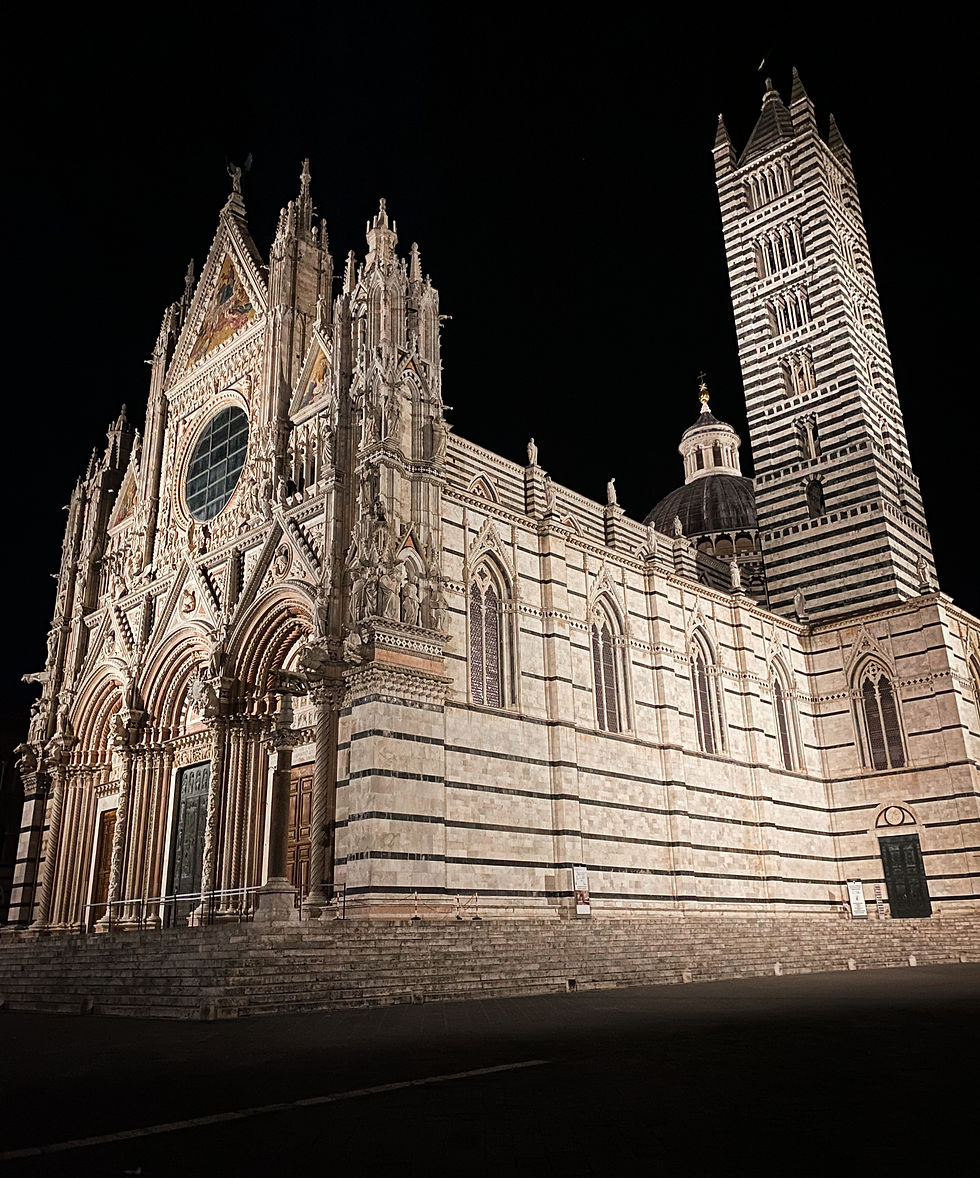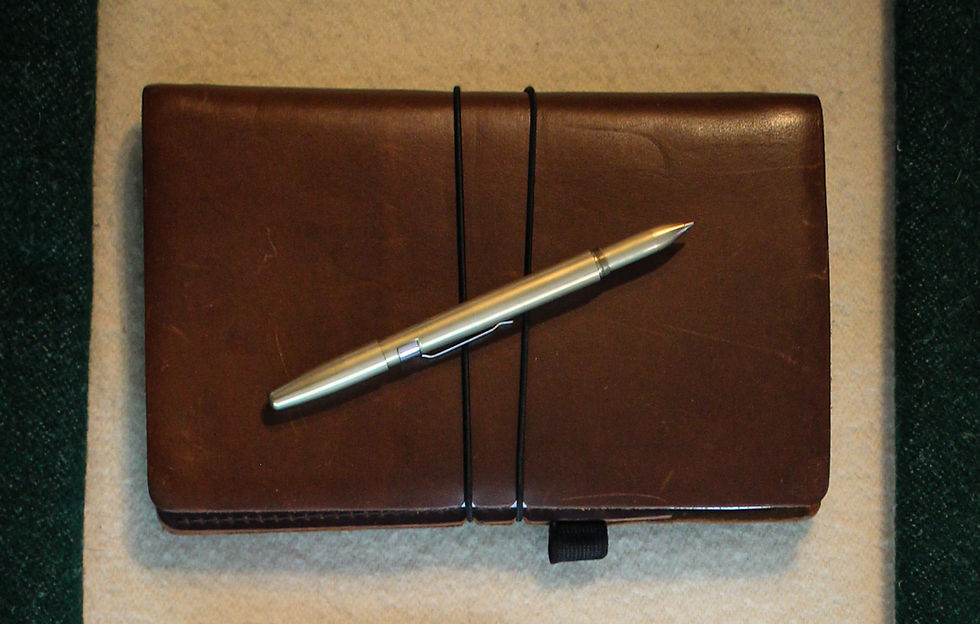Embracing Analog: The Joy of Imperfect Travel
- Christopher Roche

- Jun 6, 2025
- 5 min read

“Eat at a local restaurant tonight. Get the cream sauce. Have a cold pint at 4 o'clock in a mostly empty bar. Go somewhere you've never been. Listen to someone you think may have nothing in common with you. Order the steak rare. Eat an oyster. Have a negroni. Have two. Be open to a world where you may not understand or agree with the person next to you, but have a drink with them anyways. Eat slowly. Tip your server. Check in on your friends. Check in on yourself. Enjoy the ride.” - Anthony Bourdain
Few quotes have shaped my outlook on life as much as this one. Not just in the context of travel, but life itself. As someone who’s battled cancer twice, I’ve learned firsthand that life is here to be lived, not just survived.
It’s here to be savored, explored, and shared with the people who make the journey worthwhile. Bourdain’s words aren’t just a list of recommendations; they’re a call to action. They remind us that the beauty of life and travel isn’t in the curated or the perfect—it’s in the messy, the unexpected, and the human.
This edition of Embracing Analog is part journal entry, part reflection, part who-the-hell-knows. Most of all, it’s about slowing down, letting go of the script, and learning to travel with intention.
Slow the Hell Down

In the last Embracing Analog piece, I wrote about carrying a pocket notebook for a year and how it helped me disconnect, reflect, and remember more. That small analog habit reminded me of the value of slowing down.
Slow, or “Analog” travel, for me, means taking a step back from overplanning, overpacking, and overdoing. It’s about resisting the urge to check off every museum, tour, and viral restaurant spot. It doesn’t mean ditching those things entirely—they can be wonderful. But it does mean being open to wandering, to stumbling upon experiences that weren’t part of the plan.
Some of my favorite travel memories aren’t about seeing the biggest landmarks. They’re about wandering through sleepy Costa Rican towns or joining the passeggiata through Siena just before dinner. You know it’s time to stop walking when the clinking of plates and the smell of garlic and rosemary begin pouring from windows. The city exhales, and you realize it’s time to eat.
When Things Go Sideways

Not if, when.
Here’s the thing: things will go wrong. And believe me, that's where the best stories come from.
You won’t find the stories worth telling at the hotel buffet or poolside at the resort. You'll find them when your boat makes an emergency beach landing in a midnight Costa Rican thunderstorm, and you have to run through the jungle with nothing but a trash bag to keep you and your gear dry.
From a car breaking down on a half-collapsed dirt bridge in Costa Rica to a bug flying straight into my ear mid-dinner to nearly getting kidnapped in Antwerp (a long story for another day) — it’s in these moments where everything seems to be falling apart that some of the richest stories emerge.
These moments teach us how to adapt. They force us to pause, to reframe, to improvise. They remind us of what matters: safety, patience, humor, and curiosity.
Analog travel embraces the detours because that’s where the magic is hiding.
Let Locals Be Your Guidebook

I’ll trust a local’s recommendation over Google or Yelp any day.
That’s not to say I’ve completely abandoned Google Maps or OpenTable—they’re valuable tools. But asking a stranger for their favorite lunch spot or best place to get coffee sparks something deeper than a five-star review.
Some of the best meals I’ve had were ones I never would’ve found online—meals shared in small backyard cantinas, beachside shacks, or tiny storefronts tucked away down alleys and side streets, hidden from the main square.
Like the time I learned to make chocolate from scratch with a local in Costa Rica, or hand rolling pasta with two Italian grandmothers in the Tuscan countryside.
Letting locals lead the way is a practice in humility. You’re not the critic. You’re the guest.
Doing Good Along the Way

Travel is often framed as a break from responsibility. And sure—it should be. But it’s also a chance to show up for the places you visit, even in small ways.
I’m not talking about performative voluntourism or Instagram charity. I’m talking about being helpful, being open, and being decent.
The last time I was in Costa Rica, I joined a beach cleanup. Nothing heroic—I just showed up. What made it memorable wasn’t the act itself, but the people: locals, surfers, tourists, families. Everyone was there simply to lend a helping hand. No ego. Just music, laughter, and a shared purpose.
Helping doesn’t have to be a headline. Sometimes it’s asking if someone needs directions. Sometimes it’s offering your seat, your umbrella, or your time. The kind of help that leaves no trace except a better memory.
Doing good while traveling shouldn’t be a performance. It should be second nature.
On Being Present

Travel offers the perfect excuse to unplug. When I pack, I always bring a field notes-sized notebook and a larger journal. One’s for scraps, mementos, and quick notes. The other is for longer reflections, drawings, or even treasure maps.
In addition to the notebooks, I always travel with a paperback and a deck of cards.
The book is for quiet evenings—like the one I spent on the porch of a cabin in an Icelandic national park, watching a blanket of clouds roll over the mountaintops as night settled in.
The cards are for moments in between—like playing an intense game of Casino with fellow travelers while waiting for the next bus to Florence. Cards have a way of transcending language, inviting connection and turning otherwise forgettable pauses into the kind of memories that stick.
The more I embrace analog tools while traveling, the more present I feel. I notice more. I remember more. I engage more.
Travel Isn’t a Checklist

Looking back on Bourdain’s quote, it’s clear he wasn’t giving us a checklist. He was offering an invitation. An invitation to live with your eyes open, to eat well, to listen deeply, to say yes more often, and to explore the unknown without needing it to be perfect.
Travel isn’t beautiful because it’s easy—it’s beautiful because it’s real. Because it’s slow, imperfect, and unpredictable. The magic lives in the missed trains, shared meals, strange conversations, and in the person you become when things don’t go to plan.
So, next time you plan a trip, ask yourself—not just where you’re going, but why?
And pack a deck of cards.



Comments